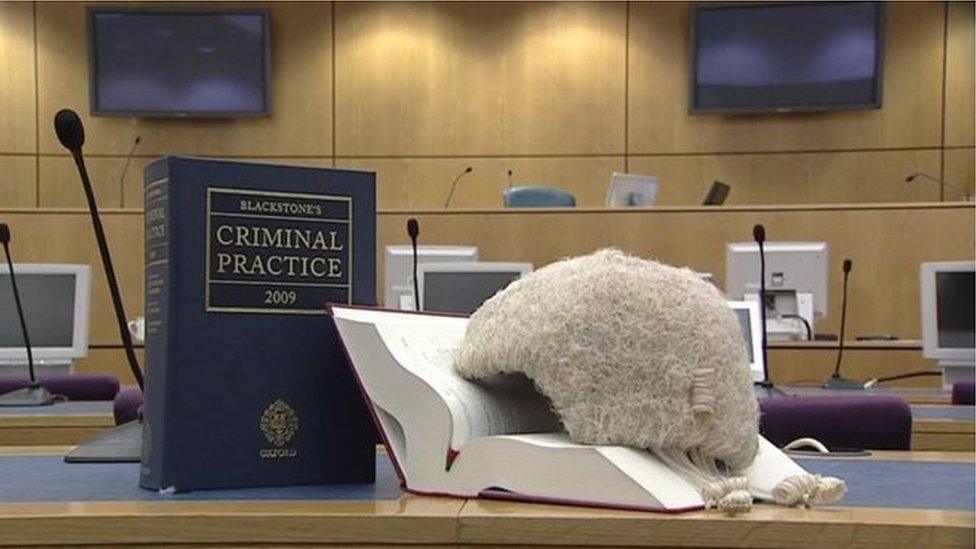Non-jury trials to continue because of paramilitaries
- Published

The use of non-jury trials in Northern Ireland will continue, with a government review stating they remain necessary due to "fear and intimidation" caused by paramilitaries.
Legislation allowing them must be renewed every two years.
The security service MI5 and the PSNI both supported the extension to 2021.
The Northern Ireland Office (NIO) said the "controlling influence" of paramilitaries meant juries should still not be used in certain cases.
Intimidated
The non-jury system, named after Lord Diplock, was introduced in 1973.
At the height of the Troubles, more than 300 cases a year were tried by a judge sitting alone, but now they number around 20.
The government technically abolished the old Diplock courts in 2007.
However, it gave the Director of Public Prosecutions temporary power to decide that exceptional cases should be tried without a jury, particularly if he believed there was a chance of jurors being intimidated.
Another reason for their use is when there is potential for jury bias because of a defendant's background.
In announcing the latest extension, the government said it "remains fully committed" to ending judge-only trials "when safe and compatible with the interests of justice".
Both Houses of Parliament must approve the move.